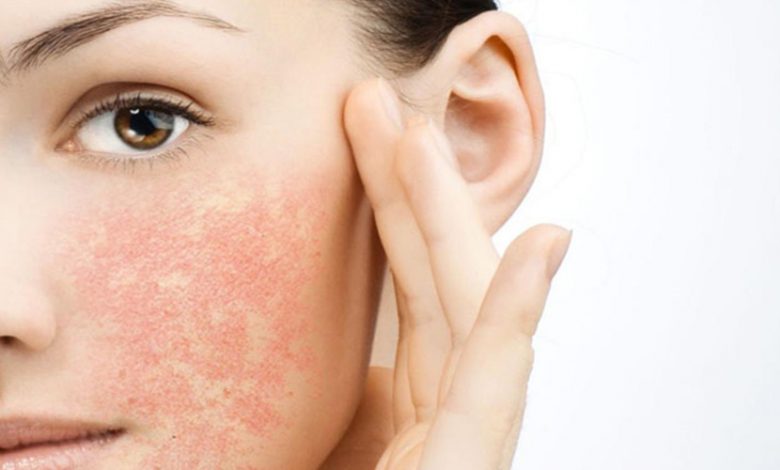Understanding Persistent Skin Redness: Causes and Management

Skin redness, also known as erythema, is a common condition that can be caused by a variety of factors. While many cases of skin redness are temporary and resolve on their own, persistent or recurring redness may indicate an underlying issue that requires attention. In this article, we will explore some of the potential causes of persistent skin redness and discuss steps you can take to manage and alleviate this condition.
Allergic Reactions: Sensitivity to Substances
- Allergies to certain foods, medications, cosmetics, or environmental factors can lead to persistent skin redness.
2. Skin Irritation: Friction and Chemicals
- Prolonged exposure to irritants, such as harsh chemicals or rough fabrics, can cause chronic skin redness.
3. Dermatitis: Inflammatory Skin Conditions
- Conditions like atopic dermatitis, contact dermatitis, and seborrheic dermatitis can result in ongoing skin redness.
4. Rosacea: Chronic Facial Redness
- Rosacea is a common skin disorder characterized by persistent redness, often on the face.
5. Psoriasis: Immune-Mediated Redness
- Psoriasis is an autoimmune disorder that can cause red, inflamed patches of skin.
6. Eczema: Chronic Inflammation
- Eczema, also known as atopic dermatitis, can lead to chronic redness and skin irritation.
7. Sunburn: Long-Lasting Effects
- Severe sunburn can cause prolonged redness and skin damage.
8. Autoimmune Disorders: Immune System Dysfunction
- Certain autoimmune conditions, such as lupus, can result in chronic skin redness.
9. Infections: Bacterial or Fungal
- Bacterial or fungal infections can lead to persistent redness, especially if left untreated.
10. Medication Side Effects: Skin Reactions – Some medications may cause skin redness as a side effect, particularly if you’re sensitive to them.
11. Underlying Health Conditions: Internal Factors – Health issues like cardiovascular problems or hormonal imbalances may manifest as persistent skin redness.
12. Genetic Factors: Inherited Predisposition – Genetic factors can contribute to conditions that cause chronic skin redness.
13. Chronic Inflammation: Immune Response – Long-term inflammation due to various factors can result in ongoing skin redness.
14. Poor Skin Care: Aggravating Factors – Improper skincare routines, including using harsh products or not moisturizing adequately, can worsen redness.
15. Stress and Lifestyle: Impact on Skin Health – Chronic stress and an unhealthy lifestyle can contribute to persistent skin redness.
Persistent skin redness should not be ignored, as it may indicate an underlying issue that requires attention and proper management. If you’re experiencing ongoing redness that does not resolve or worsens over time, it’s important to consult a dermatologist or healthcare professional. By identifying the underlying cause and following recommended treatments, you can effectively manage and alleviate persistent skin redness, promoting healthier and more comfortable skin.
Caring for Sensitive Skin: Avoiding Irritating Substances
Sensitive skin requires gentle care and attention to avoid potential irritations and adverse reactions. While many skincare products and treatments are designed to cater to various skin types, individuals with sensitive skin must be cautious about the substances they use. In this article, we will explore common irritants and substances that should be avoided when caring for sensitive skin.
Fragrances and Artificial Scents: Potential Irritants
- Fragrances and artificial scents added to skincare products can often trigger allergic reactions and irritation in sensitive skin.
2. Harsh Cleansers and Soaps: Stripping Natural Oils
- Cleansers and soaps that contain harsh detergents or sulfates can strip the skin of its natural oils and disrupt its delicate balance.
3. Alcohol-Based Products: Drying Effect
- Products containing high levels of alcohol can cause dryness and irritation, especially for those with sensitive skin.
4. Strong Exfoliants: Abrasive Treatment
- Strong exfoliants with large particles or high concentrations of active ingredients can be too harsh for sensitive skin.
5. Retinoids and Retinol: Potential Sensitivity
- Strong retinoid-based products or retinol treatments may cause redness, flaking, and sensitivity in sensitive skin.
6. Benzoyl Peroxide: Drying and Irritation
- While effective against acne, benzoyl peroxide can lead to dryness and irritation, particularly in sensitive skin.
7. Essential Oils: Potential Allergens
- Some essential oils can trigger allergic reactions or sensitivities in sensitive skin.
8. Strong Acids: Disruption of pH Balance
- Highly acidic products, such as glycolic or salicylic acid, can disrupt the skin’s pH balance and cause irritation.
9. Synthetic Dyes: Unwanted Reactions
- Synthetic dyes added to skincare products can potentially cause allergic reactions or irritation.
10. Abrasive Scrubs: Mechanical Irritation – Abrasive scrubs with coarse particles can physically irritate sensitive skin and cause microtears.
11. Harsh Toners: Stripping Natural Moisture – Toners containing alcohol or astringents can strip the skin of its natural moisture and lead to dryness.
12. Hot Water: Dilating Blood Vessels – Excessive use of hot water while cleansing can dilate blood vessels and exacerbate redness in sensitive skin.
13. Synthetic Preservatives: Potential Sensitivity – Certain synthetic preservatives, such as parabens, may cause sensitivities in some individuals.
14. High-Fragrance Skincare: Overwhelming Scent – Skincare products with overpowering fragrances can cause irritation and discomfort.
15. Overuse of Active Ingredients: Caution with Concentrations – Even mild active ingredients, when used excessively, can lead to sensitization in sensitive skin.
Caring for sensitive skin involves a delicate balance of using gentle and non-irritating products. Avoiding potential irritants, such as fragrances, harsh cleansers, and strong exfoliants, is key to maintaining the health and comfort of sensitive skin. When selecting skincare products, always read ingredient labels, opt for hypoallergenic options, and perform patch tests before applying new products to your face. Consulting a dermatologist or skincare professional can provide personalized guidance on the best products and routines for your sensitive skin, ensuring a soothing and irritation-free skincare experience.
















